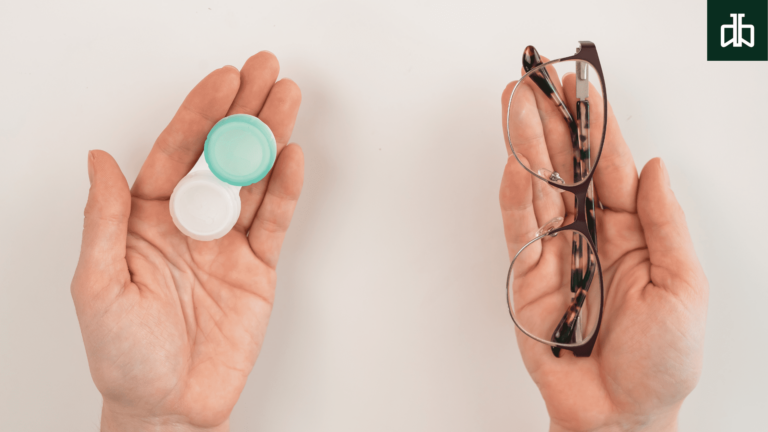When it comes to vision correction, many people face the choice between glasses and contact lenses. While both options offer their own set of benefits and drawbacks, there’s a lesser-known issue that affects both: the fast fashion problem. In an era where sustainability is increasingly in focus, it’s time to shed light on the environmental and ethical implications of our eyewear choices.
First, let’s consider the production process. Both glasses and contact lenses require raw materials, manufacturing, and distribution, all of which contribute to their environmental footprint. Traditional glasses are often made from materials like plastic, metal, or acetate, which require energy-intensive processes to produce. Additionally, the transportation of these materials and finished products adds to their carbon footprint.
Contact lenses, on the other hand, are typically made from a combination of plastic polymers and silicone hydrogel. The production of these materials involves the extraction and processing of fossil fuels, leading to environmental degradation and contributing to climate change. Moreover, the packaging of contact lenses and their associated solutions often involves single-use plastics, further exacerbating the problem of plastic pollution.
Beyond the production phase, the disposal of glasses and contact lenses also poses challenges. While glasses can be recycled, many end up in landfills due to lack of awareness or infrastructure for recycling eyewear. Similarly, contact lenses and their packaging are often discarded as non-recyclable waste, adding to the growing problem of plastic pollution in oceans and landfills.
In addition to environmental concerns, there are also ethical issues associated with the fast fashion approach to eyewear. Many eyewear brands prioritize profit over sustainability and fair labor practices, leading to exploitation of workers and environmental degradation in the production process. Furthermore, the pressure to constantly update styles and designs contributes to a culture of overconsumption and waste.
So, what can we do to address the fast fashion problem in eyewear?
One solution is to opt for sustainable and ethically-made eyewear options. Look for brands that prioritize eco-friendly materials, ethical labor practices, and transparent supply chains. Consider investing in timeless designs that will stand the test of time, rather than succumbing to the trends of fast fashion.
Additionally, consider the longevity of your eyewear. Instead of treating glasses or contact lenses as disposable items, take care of them and extend their lifespan through proper maintenance and repair. When it’s time to replace your eyewear, explore options for recycling or donating them to organizations that provide eyewear to those in need.
Finally, advocate for systemic change within the eyewear industry. Support initiatives that promote sustainability, transparency, and ethical production practices. By raising awareness and holding brands accountable, we can work towards a more sustainable and equitable future for eyewear.
In conclusion, the fast fashion problem extends beyond clothing and accessories to include eyewear as well. By recognizing the environmental and ethical implications of our choices, we can take steps to mitigate the impact of our eyewear consumption. Whether opting for glasses or contacts, let’s prioritize sustainability, ethics, and longevity in our eyewear decisions.
Also Read: Powerful Ways to Change Your Thoughts and Transform Your Life






